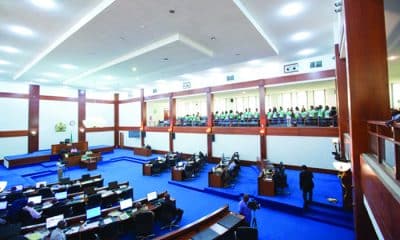Nigeria News
Mohbad’s Autopsy Report Reveals Unexpected Findings

The autopsy report on the late singer, Ilerioluwa Oladimeji Aloba, popularly known as Mohbad, has revealed new details about his death, but the exact cause remains uncertain.
The report, obtained by TheCable on Thursday, shows that the autopsy was conducted at the Lagos State University Teaching Hospital (LASUTH) and included a toxicology test.
The test results showed traces of Diphenhydramine, an anti-histamine, in Mohbad’s system, but the concentration was not fatal or lethal. Anti-histamines are commonly used to treat allergies, stomach problems, colds, and anxiety.
The autopsy also revealed an injury on Mohbad’s right forearm and moderate to severe decomposition of his body, which was exhumed eight days after burial. However, no significant gross findings could be attributed to his death.
The report suggests that the possibility of a fatal anaphylactic shock or drug reaction cannot be ruled out, despite the absence of significant post-mortem and toxicology findings. Anaphylactic shock is a severe allergic reaction that can be life-threatening.
“It is noteworthy that the body neither had an autopsy nor embalmed prior to interment on the second day,” the report states.
“Following the Order for Exhumation, the body was exhumed on 21/09/2023 (8 days after the burial).
“Autopsy revealed moderate to marked decomposition of organs. Apart from the superficial injury on the right forearm, no significant gross finding could be attributed to death.
“Against this background, samples were taken for toxicology. This is to determine if there was any anaphylactic reaction, substances of abuse, overdosage or common household poisoning.
“Toxicology revealed positive findings of Diphenhydramine, an anti-histamine; however, this concentration was not in a fatal or lethal range. The other analytics were unremarkable.
“In determining fatal anaphylactic shock, blood sample needs to be taken as quickly as possible.
“Unfortunately, this was prevented or made impossible by the burial of the deceased on the second day. In the light of the foregoing, cause of death could not be ascertained.
“However, the possibility of a fatal anaphylactic shock (drug reaction) could be considered in view of the absence of any significant post mortem and toxicology findings.”
The autopsy report highlights the importance of timely blood sampling to determine fatal anaphylactic shock, which was not possible in this case due to Mohbad’s burial on the second day.












